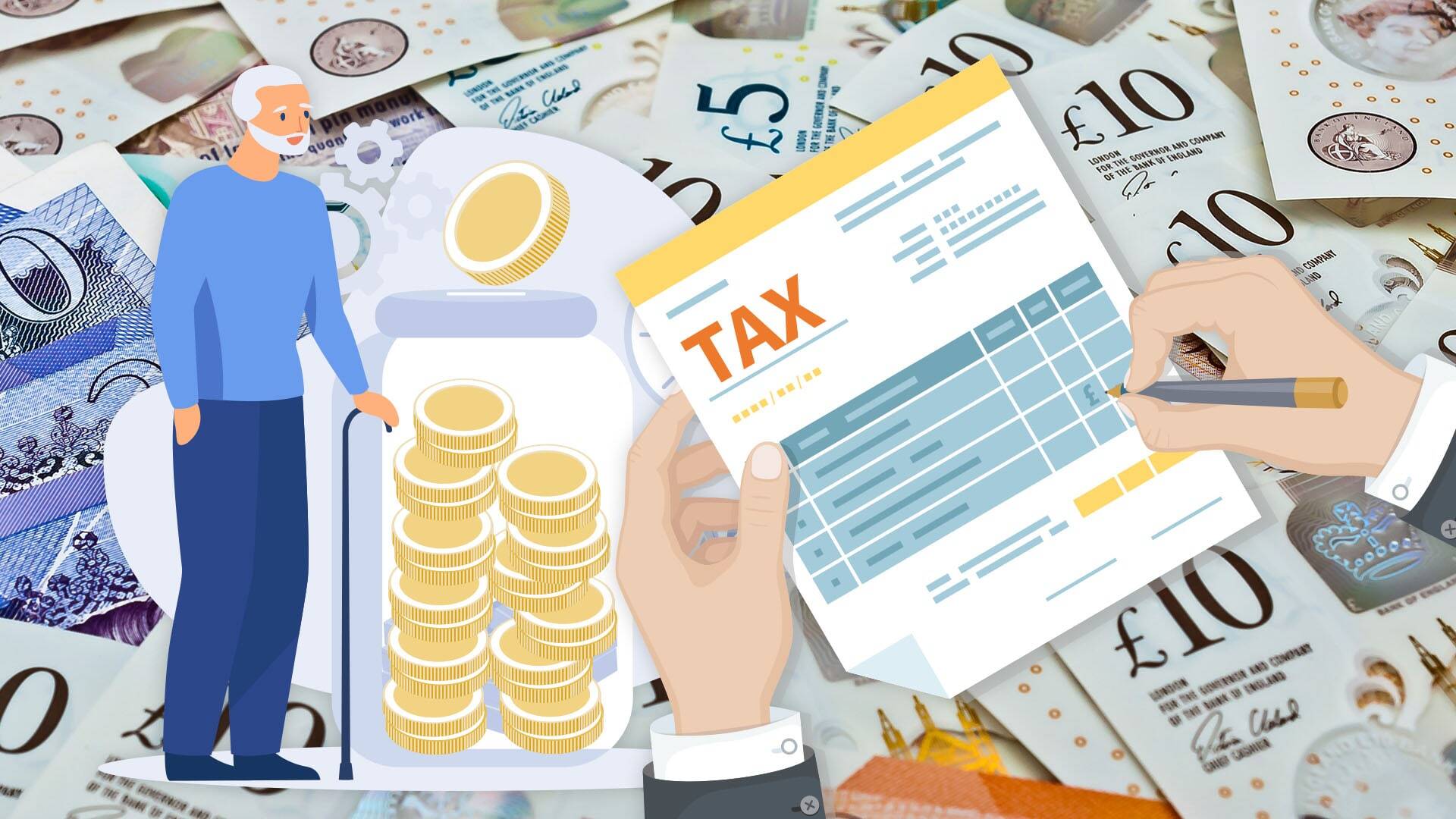Money
Britons Boost Pension Withdrawals Before Upcoming Budget

Britons Increasing Pension Withdrawals Ahead of Budget Announcement
As the budget announcement on October 30 approaches, Britons are withdrawing more money from their pensions, according to insights from an investment platform. Michael Summersgill, CEO of AJ Bell, highlights that many savers are opting to increase their tax-free cash withdrawals. Currently, individuals can withdraw 25% of their pension, with a maximum limit of £268,275. While there’s no definitive evidence suggesting a reduction in this percentage, left-leaning think tanks have advised the government that the 25% rule mainly benefits wealthier individuals.
Understanding Pension Withdrawals
Summersgill stated, “Pensions serve as the main savings tool for retirement in the UK, and it’s natural for customers to be concerned about any potential tax changes. With the heightened media focus leading up to the budget, we’ve observed a significant shift in both pension contributions and tax-free withdrawals.”
Conversely, Ross Lacey, a director and chartered financial planner at Fairview Financial Management, advises clients against making hasty decisions. “Given the increasing emphasis on self-funding retirement and the existing challenges pensions face in terms of public perception, it would be unwise to implement changes that could make pensions less appealing,” he noted. It’s worth mentioning that immediate tax changes are not uncommon but are still unexpected.
Should You Increase Your Pension Contributions Before the Autumn Budget?
With the Autumn Budget approaching, many are pondering whether to increase their pension contributions. There are speculations that higher- and additional-rate taxpayers might receive a reduced rate of tax relief on their pension contributions. However, specific details and implementation dates will only be revealed during the Budget.
While it’s generally wise to avoid hasty decisions, if you’re already considering boosting your pension and fall into a higher or additional-rate tax bracket, now might be the time to strategize for maximizing your contributions.
Potential Changes to Tax Relief
Currently, contributions to personal pensions receive tax relief based on the highest income tax rate. For instance, a contribution of £80 to a personal pension automatically includes an extra £20 in basic-rate (20%) tax relief. Higher-rate (40%) and additional-rate (45%) taxpayers can reclaim additional amounts through their self-assessment tax return.
However, rumors suggest the Chancellor may consider a flat rate of tax relief between 20% and 30% for all individuals. This change would aim for more equitable benefits across income levels but would result in lower advantages for those currently receiving higher rates of tax relief.
Related: More young home owners gamble their retirement with mortgages lasting past state pension age
Maximizing Your Pension Benefits
If the proposed changes are implemented, higher- and additional-rate taxpayers may miss out on certain tax perks. Nevertheless, most UK taxpayers will still benefit significantly. If you’re in a higher tax bracket, it may be wise to consider advancing your pension contributions before any potential changes take effect. This strategy allows you to maximize the higher relief rates currently available.
For those in workplace pension schemes, consulting with your employer about increasing contributions can also be beneficial. Many employers match contributions, significantly enhancing pension savings over time.
As of now, tax relief on pension contributions is available up to 100% of your gross relevant earnings, with a cap of £60,000 for the 2024-25 tax year. This cap, known as the ‘annual allowance,’ includes both your contributions and those from your employer before tax. Note that the annual allowance may be reduced if you have a high income or have accessed your pension pot flexibly.
Considerations Before Boosting Your Pension
While increasing your pension may seem like a prudent choice, it’s not suitable for everyone. First, assess whether you can comfortably afford to increase your contributions. Remember that you won’t be able to access these funds until at least age 55, rising to age 57 in April 2028. If you anticipate needing access to your funds before retirement, consider an Individual Savings Account (ISA) instead. Although ISAs don’t offer tax relief on contributions, you can withdraw your money whenever without incurring tax penalties.
For the 2024-25 tax year, you can contribute up to £20,000 to ISAs. Increasing your ISA contributions might also be timely, as there are rumors of a potential lifetime cap on ISA savings that could be introduced in the Autumn Budget or by a future government.
Diversifying investments across various accounts, including ISAs and pensions, can help mitigate risks associated with changes in tax laws or personal circumstances. Regularly managing contributions and withdrawals from different accounts can enhance tax efficiency, ultimately reducing your overall investment costs.
Conclusion
Regularly reviewing your monthly savings and ensuring you’re investing tax-efficiently is crucial as you work toward your retirement goals. By maintaining a long-term perspective and considering your financial objectives, you can set yourself up for a brighter financial future.
Please note that the tax rates and allowances mentioned in this article are based on information as of September 2024.
Money
Empiric Student Property raises £56m via share placing

TRY 6 ISSUES FOR JUST £6
Try 6 issues of Property Week for £6 to finish this article.
Sign up now for the following benefits:
- Unlimited access to Property Week and newsletters
- Breaking news, comment and analysis from industry experts as it happens

Don’t want full access? REGISTER NOW for limited access and to subscribe to our newsletters.
Money
How famous silhouette on your 50p coin could make it worth 9000 TIMES more – check your change now

A FAMOUS silhouette on your 50p coin could make it worth more than 9000 times its face value.
The pieces were minted in 2019 to commemorate character Sherlock Holmes and his creator, Sir Arthur Conan Doyle.
The Queen Elizabeth II 50p: Sir Arthur Conan Doyle marked 160 years since the birth of the renowned author.
The prolific writer is best known for the popular detective stories featuring the fictional detective Sherlock Holmes.
Stephen Raw’s coin design features a silhouette of Sherlock Holmes smoking a pipe, surrounded by a few of Doyle’s most-famous story titles.
The head side features the fifth portrait of Queen Elizabeth II, designed by Royal Mint engraver Jody Clark.
One of the pieces was recently listed on eBay for £4,500, more than 9000 times the coin’s face value.
The listing read: “Crafted to perfection with a fineness of 0.999, this coin is a must-have for any British decimal coinage enthusiast.
“Featuring a very rare design, this coin is a true gem that you won’t want to miss.”
Others have also been listed on the marketplace, including multiple for £1,000.
While more than eight million of the coins were minted, some are rarer than others.
Certain variations are incredibly sought after by collectors, including ones with errors or special designs.
The Sherlock Holmes 50p coin was also released in different versions including Brilliant Uncirculated Packs, Silver proof versions, silver proof piedfort versions and also gold proof versions.
This, however, is not the only rare coin out there that you could find lying around in your change.
A rare 20p piece recently sold for £75 on eBay.
It was one of a number of coins struck with the wrong dye, meaning that no date is featured on the change.
It is thought around 250,000 coins have the error.
Similarly, a design flaw on a £2 led it to be sold for more than 40 times its value on eBay.
The coin was originally available to buy around five years ago to celebrate the 60th anniversary of Jersey Zoo, but now punters can only get it second-hand.
It is a commemorative coin meaning it is limited edition and would not usually be given as change if you bought something in a shop.
What are the most rare and valuable coins?
The rare Jersey Zoo coin sold for £85 in August.
What makes a coin rare?
Rare coins have been known to sell for thousands of pounds in the past with collectors keen to snap them up.
A coin is considered rare usually if it falls into one of two categories – having a low mintage or being an “error” coin.
The mintage of a coin relates to how many of it were struck and put into general circulation.
The lower amount of a coin that was created and is available to the public, the rarer and, potentially, more valuable it is.
A coin may also be classed as rare if there was a mistake made during the manufacturing process which means very few are out there – an error coin.
In some cases, there are just a handful of each error coin for the public to get their hands on making them incredibly rare and valuable.
You can check a coin’s rarity on sites such as Change Checker which show how many were minted and if they are in demand from coin collectors.
Money
M Core reveals robust annual perfomance

Since January, M Core has acquired 19 assets across the UK, totalling £144m and its managed portfolio now includes 539 properties and 7,740 units, with a total value of £2.6bn.
This article is for subscribers or registered users only
Already registered? please Log in to continue
TRY 6 ISSUES FOR JUST £6
Try 6 issues of Property Week for £6 to finish this article.
Sign up now for the following benefits:
- Unlimited access to Property Week and newsletters
- Breaking news, comment and analysis from industry experts as it happens

Don’t want full access? REGISTER NOW for limited access and to subscribe to our newsletters.
Already registered or subscribed? SIGN IN here to continue
Check if you already have access from your company or university
Money
How product providers should offer advice


Reading about M&G’s troubles, I can’t help putting them down to the obsession with running an expensive fund platform. But what do I know?
What I do know about is 21st century advice – something I believe is built on the shoulders of giants, such as the Man from the Pru.
These advisers door-knocked, cold called and worked evenings to get families started on a lifetime of saving and self-preservation.
So, why is offering advice so hard these days?
It’s a real shame such a historical institution as M&G cannot remain committed to solving the challenges of advice regulation while making a profit.
It’s a real shame such a historical institution as M&G cannot remain committed to solving the challenges of advice regulation while making a profit
There remains a huge advice gap opportunity for any company who can de-mystify the world of investment and help the man in the street access the wonder of compound interest, just like they used to.
Providing advice seems to terrify those around the board table. Is it impatience from shareholders, short termism on the part of directors or just fear of liability? Probably all three.
I have previously voiced support for a simplified advice regime which could be a gateway to the markets for low value investors taking advice.
To those providers pondering on leaving or entering the advice market, here are my suggestions for making it work:
- Reduce the hurdle of cash savings: Three months spending in cash can take five to seven years for people to save and it is not mandatory as emergency provision. This restriction serves the anxiety of compliance staff more than it serves the interest of investors, and it can be done better.
- Know the outcomes of what you are offering: Charges need to be competitive, and easily justified. Funds need to be liquid, transparent and dependable in their expected returns. Projections need to be realistic and not woefully cautious.
- Think about the liabilities: How will they arise? How is the compensation calculated? Which investors complain? What triggers the complaint? By looking at this in full detail, you can inform the quality of your messaging and have more investors with confidence.
- Get the box tickers out from their desks: Give them sales training, teach them to advise, make them talk to clients.
- Focus on service: Of £198,798 complaints to the Financial Ombudsman Service in 2023/24, £1,459 (0.7%) of them were against advisers. Why fixate so much on the nuances of suitability? With a simple and reliable product proposition, 90% of advice can be algorithmic – making it both efficient and profitable.
- Know your target market and sell to them: Financial services have been a huge contributor to prosperity in the UK. We should believe in the benefit of what we do.
The regulation of financial services in the UK has been a been a huge success in improving the rights and security of consumers. But it is nothing to fear. Our faith in delivering advice to all must endure alongside the products and the markets that will deliver for investors.
Greg Neall is chartered financial planner at Wake Up Your Wealth
Money
State pension warning as hundreds of thousands ‘edge closer’ to having money knocked off payments

HUNDREDS of thousands of retirees are set to pay tax on their state pension for the first time next year.
This is due to a combination of hefty state pension rises and frozen tax thresholds.
It is expected that more than 300,000 pensioners will be told that they need to pay tax when the state pension rises by £473 in 2025.
The figures released this week have confirmed that the state pension is now expected to rise from £11,502.40 to £11,975 per year under the triple lock.
With tax thresholds frozen until 2028, this increase will drag even more pensioners into paying tax for the first time, it has been warned.
This is because the total annual amount of income they receive will be more than their personal allowance.
The allowance is the amount of money you can earn before you have to pay tax on your income.
Under the current rules, this is up to £12,570 each tax year.
It was previously expected that around 140,000 pensioners would receive a letter for the first time this year.
But because of the proposed increase in the state pension, more than 300,0000 people are now likely to get one.
Alice Haine of Bestinvest said: “Add in frozen tax thresholds, with the full new state pension gaining ground on the standard personal allowance of £12,570 and pensioners are edging closer to the point at which their state pension income becomes liable for tax.
“Retirees already receiving a higher state pension may already be paying tax on the benefit, while those receiving a private pension income will see more of that swallowed up by tax.”
Helen Morrissey, head of retirement analysis, Hargreaves Lansdown also pointed out that while rising state pensions are good news, the tax threat is “a hidden sting in the tail”.
She said: “While the full new state pension is currently set at £11,502 and is set to get close to £12,000 from next April it’s conceivable that in the next two years we could see it breach the £12,570 threshold and see pensioners landed with a tax bill.
“It’s also worth saying that many pensioners on the basic state pension system receive more than this as they get a top-up to their income in the form of the state second pension so receive a tax bill even if they have no other income.”
Many pensioners have other pensions – personal or workplace – and HMRC will usually take the income tax due through these pensions, Helen pointed out.
She said: “Those pensioners wholly reliant on the state pension who face paying tax will receive a simple assessment letter from HMRC telling them how much they owe.
“There have been concerns about pensioners being chased for small amounts of tax though HMRC has said they would not look to chase tax amounts that would cost more to collect than is actually owed.”
Why is this happening and is there anything I can do to avoid it?
High inflation rates mean more people in work are getting pay rises to try and keep pace with rising prices.
However, with income tax bands frozen, it means many are being pushed into the next tax bracket.
Laura Suter, director of personal finance at AJ Bell, previously told The Sun: “Pensioners looking to reduce their tax bill need to think about how they can maximise their tax-free income.
“For example, any withdrawals made from their ISAs will be free of any tax. so they can use that pot of money to boost their income without impacting their tax bill.”
An ISA is a type of savings account in which you can save up to £20,00 a year tax-free.
Laura also suggested that couples can organise their finances so they ensure they are each making use of their tax-free allowances, which might involve moving money or assets between themselves.
Helen also added that pensioners might want to use some of their pension to top up their income.
She said: “Most people can access 25% of their pension as a tax-free lump sum so they may decide to use this to top up their income without pushing up their tax bill.”
However, she also warned that pensioners below the personal allowance are going to find it increasingly difficult to avoid paying income tax in the coming years.
The finance expert added: “A full new state pension hits just over £11,500 per year and even relatively modest 3.5% annual increases would see people pushed over the threshold by the time the threshold freeze ends.”
How does the state pension work?
AT the moment the current state pension is paid to both men and women from age 66 – but it’s due to rise to 67 by 2028 and 68 by 2046.
The state pension is a recurring payment from the government most Brits start getting when they reach State Pension age.
But not everyone gets the same amount, and you are awarded depending on your National Insurance record.
For most pensioners, it forms only part of their retirement income, as they could have other pots from a workplace pension, earning and savings.
The new state pension is based on people’s National Insurance records.
Workers must have 35 qualifying years of National Insurance to get the maximum amount of the new state pension.
You earn National Insurance qualifying years through work, or by getting credits, for instance when you are looking after children and claiming child benefit.
If you have gaps, you can top up your record by paying in voluntary National Insurance contributions.
To get the old, full basic state pension, you will need 30 years of contributions or credits.
You will need at least 10 years on your NI record to get any state pension.
Do you have a money problem that needs sorting? Get in touch by emailing money-sm@news.co.uk.
Plus, you can join our Sun Money Chats and Tips Facebook group to share your tips and stories
Money
Kennedy Wilson appoints Harris to oversee industrial and logistics investment

He joins from Paloma Capital, where he deployed capital from value-added funds and its UK industrial joint venture.
The post Kennedy Wilson appoints Harris to oversee industrial and logistics investment appeared first on Property Week.
-

 Science & Environment4 weeks ago
Science & Environment4 weeks agoHyperelastic gel is one of the stretchiest materials known to science
-

 Technology4 weeks ago
Technology4 weeks agoWould-be reality TV contestants ‘not looking real’
-

 Science & Environment4 weeks ago
Science & Environment4 weeks agoHow to unsnarl a tangle of threads, according to physics
-

 Science & Environment4 weeks ago
Science & Environment4 weeks ago‘Running of the bulls’ festival crowds move like charged particles
-

 Science & Environment4 weeks ago
Science & Environment4 weeks agoMaxwell’s demon charges quantum batteries inside of a quantum computer
-

 Technology3 weeks ago
Technology3 weeks agoIs sharing your smartphone PIN part of a healthy relationship?
-

 Science & Environment4 weeks ago
Science & Environment4 weeks agoLiquid crystals could improve quantum communication devices
-

 Womens Workouts3 weeks ago
Womens Workouts3 weeks ago3 Day Full Body Women’s Dumbbell Only Workout
-

 Science & Environment4 weeks ago
Science & Environment4 weeks agoQuantum ‘supersolid’ matter stirred using magnets
-

 Science & Environment3 weeks ago
Science & Environment3 weeks agoX-rays reveal half-billion-year-old insect ancestor
-

 Science & Environment4 weeks ago
Science & Environment4 weeks agoWhy this is a golden age for life to thrive across the universe
-

 Science & Environment4 weeks ago
Science & Environment4 weeks agoSunlight-trapping device can generate temperatures over 1000°C
-

 Science & Environment4 weeks ago
Science & Environment4 weeks agoQuantum forces used to automatically assemble tiny device
-

 Science & Environment4 weeks ago
Science & Environment4 weeks agoNerve fibres in the brain could generate quantum entanglement
-

 Science & Environment4 weeks ago
Science & Environment4 weeks agoITER: Is the world’s biggest fusion experiment dead after new delay to 2035?
-

 Science & Environment4 weeks ago
Science & Environment4 weeks agoHow to wrap your mind around the real multiverse
-
News1 month ago
the pick of new debut fiction
-

 Science & Environment4 weeks ago
Science & Environment4 weeks agoA slight curve helps rocks make the biggest splash
-

 Science & Environment4 weeks ago
Science & Environment4 weeks agoLaser helps turn an electron into a coil of mass and charge
-

 News4 weeks ago
News4 weeks agoOur millionaire neighbour blocks us from using public footpath & screams at us in street.. it’s like living in a WARZONE – WordupNews
-

 Science & Environment4 weeks ago
Science & Environment4 weeks agoTime travel sci-fi novel is a rip-roaringly good thought experiment
-

 Science & Environment4 weeks ago
Science & Environment4 weeks agoNuclear fusion experiment overcomes two key operating hurdles
-

 Science & Environment4 weeks ago
Science & Environment4 weeks agoPhysicists are grappling with their own reproducibility crisis
-

 News1 month ago
News1 month ago▶️ Hamas in the West Bank: Rising Support and Deadly Attacks You Might Not Know About
-

 Technology3 weeks ago
Technology3 weeks agoWhy Machines Learn: A clever primer makes sense of what makes AI possible
-

 News4 weeks ago
News4 weeks ago▶️ Media Bias: How They Spin Attack on Hezbollah and Ignore the Reality
-

 News4 weeks ago
News4 weeks agoYou’re a Hypocrite, And So Am I
-
Business3 weeks ago
Eurosceptic Andrej Babiš eyes return to power in Czech Republic
-

 Sport4 weeks ago
Sport4 weeks agoJoshua vs Dubois: Chris Eubank Jr says ‘AJ’ could beat Tyson Fury and any other heavyweight in the world
-

 Science & Environment4 weeks ago
Science & Environment4 weeks agoA new kind of experiment at the Large Hadron Collider could unravel quantum reality
-

 Technology2 weeks ago
Technology2 weeks agoMicrophone made of atom-thick graphene could be used in smartphones
-

 Business2 weeks ago
Business2 weeks agoWhen to tip and when not to tip
-

 Science & Environment4 weeks ago
Science & Environment4 weeks agoCaroline Ellison aims to duck prison sentence for role in FTX collapse
-

 News1 month ago
News1 month agoNew investigation ordered into ‘doorstep murder’ of Alistair Wilson
-

 Science & Environment4 weeks ago
Science & Environment4 weeks agoPhysicists have worked out how to melt any material
-

 Science & Environment4 weeks ago
Science & Environment4 weeks agoRethinking space and time could let us do away with dark matter
-

 Technology3 weeks ago
Technology3 weeks agoQuantum computers may work better when they ignore causality
-

 Sport3 weeks ago
Sport3 weeks agoWatch UFC star deliver ‘one of the most brutal knockouts ever’ that left opponent laid spark out on the canvas
-

 Health & fitness4 weeks ago
Health & fitness4 weeks agoThe secret to a six pack – and how to keep your washboard abs in 2022
-

 Science & Environment4 weeks ago
Science & Environment4 weeks agoA tale of two mysteries: ghostly neutrinos and the proton decay puzzle
-
News4 weeks ago
The Project Censored Newsletter – May 2024
-

 Technology3 weeks ago
Technology3 weeks agoRobo-tuna reveals how foldable fins help the speedy fish manoeuvre
-
Business3 weeks ago
Should London’s tax exiles head for Spain, Italy . . . or Wales?
-

 MMA3 weeks ago
MMA3 weeks agoConor McGregor challenges ‘woeful’ Belal Muhammad, tells Ilia Topuria it’s ‘on sight’
-

 Football3 weeks ago
Football3 weeks agoFootball Focus: Martin Keown on Liverpool’s Alisson Becker
-

 Technology3 weeks ago
Technology3 weeks agoUniversity examiners fail to spot ChatGPT answers in real-world test
-

 Technology2 weeks ago
Technology2 weeks agoThis AI video generator can melt, crush, blow up, or turn anything into cake
-

 Sport2 weeks ago
Sport2 weeks agoCoco Gauff stages superb comeback to reach China Open final
-

 Technology2 weeks ago
Technology2 weeks agoUkraine is using AI to manage the removal of Russian landmines
-
Business2 weeks ago
DoJ accuses Donald Trump of ‘private criminal effort’ to overturn 2020 election
-

 Sport2 weeks ago
Sport2 weeks agoWales fall to second loss of WXV against Italy
-

 Technology3 weeks ago
Technology3 weeks ago‘From a toaster to a server’: UK startup promises 5x ‘speed up without changing a line of code’ as it plans to take on Nvidia, AMD in the generative AI battlefield
-

 News4 weeks ago
News4 weeks agoIsrael strikes Lebanese targets as Hizbollah chief warns of ‘red lines’ crossed
-

 Science & Environment4 weeks ago
Science & Environment4 weeks agoFuture of fusion: How the UK’s JET reactor paved the way for ITER
-

 Technology3 weeks ago
Technology3 weeks agoGet ready for Meta Connect
-

 Technology2 weeks ago
Technology2 weeks agoAmazon’s Ring just doubled the price of its alarm monitoring service for grandfathered customers
-

 News2 weeks ago
News2 weeks agoHeartbreaking end to search as body of influencer, 27, found after yacht party shipwreck on ‘Devil’s Throat’ coastline
-
Politics3 weeks ago
Robert Jenrick vows to cut aid to countries that do not take back refused asylum seekers | Robert Jenrick
-
Business2 weeks ago
Ukraine faces its darkest hour
-
Business2 weeks ago
Bank of England warns of ‘future stress’ from hedge fund bets against US Treasuries
-

 Entertainment2 weeks ago
Entertainment2 weeks agoChristopher Ciccone, artist and Madonna’s younger brother, dies at 63
-

 Sport4 weeks ago
Sport4 weeks agoUFC Edmonton fight card revealed, including Brandon Moreno vs. Amir Albazi headliner
-

 Science & Environment4 weeks ago
Science & Environment4 weeks agoBeing in two places at once could make a quantum battery charge faster
-

 Technology4 weeks ago
Technology4 weeks agoThe ‘superfood’ taking over fields in northern India
-

 Science & Environment4 weeks ago
Science & Environment4 weeks agoUK spurns European invitation to join ITER nuclear fusion project
-

 Science & Environment4 weeks ago
Science & Environment4 weeks agoWhy we need to invoke philosophy to judge bizarre concepts in science
-

 CryptoCurrency4 weeks ago
CryptoCurrency4 weeks agoCardano founder to meet Argentina president Javier Milei
-
Politics4 weeks ago
UK consumer confidence falls sharply amid fears of ‘painful’ budget | Economics
-

 TV4 weeks ago
TV4 weeks agoCNN TÜRK – 🔴 Canlı Yayın ᴴᴰ – Canlı TV izle
-

 News4 weeks ago
News4 weeks agoWhy Is Everyone Excited About These Smart Insoles?
-

 Womens Workouts3 weeks ago
Womens Workouts3 weeks ago3 Day Full Body Toning Workout for Women
-

 Health & fitness3 weeks ago
Health & fitness3 weeks agoThe 7 lifestyle habits you can stop now for a slimmer face by next week
-

 News1 month ago
News1 month agoHow FedEx CEO Raj Subramaniam Is Adapting to a Post-Pandemic Economy
-

 CryptoCurrency4 weeks ago
CryptoCurrency4 weeks agoDZ Bank partners with Boerse Stuttgart for crypto trading
-
Business4 weeks ago
Thames Water seeks extension on debt terms to avoid renationalisation
-
Politics4 weeks ago
‘Appalling’ rows over Sue Gray must stop, senior ministers say | Sue Gray
-

 Science & Environment4 weeks ago
Science & Environment4 weeks agoMeet the world's first female male model | 7.30
-

 News4 weeks ago
News4 weeks agoFour dead & 18 injured in horror mass shooting with victims ‘caught in crossfire’ as cops hunt multiple gunmen
-

 Servers computers3 weeks ago
Servers computers3 weeks agoWhat are the benefits of Blade servers compared to rack servers?
-

 Sport2 weeks ago
Sport2 weeks agoWorld’s sexiest referee Claudia Romani shows off incredible figure in animal print bikini on South Beach
-

 Sport2 weeks ago
Sport2 weeks agoLauren Keen-Hawkins: Injured amateur jockey continues progress from serious head injury
-

 TV2 weeks ago
TV2 weeks agoPhillip Schofield accidentally sets his camp on FIRE after using emergency radio to Channel 5 crew
-

 Business2 weeks ago
Business2 weeks agoChancellor Rachel Reeves says she needs to raise £20bn. How might she do it?
-

 MMA2 weeks ago
MMA2 weeks agoDana White’s Contender Series 74 recap, analysis, winner grades
-

 MMA2 weeks ago
MMA2 weeks agoPereira vs. Rountree prediction: Champ chases legend status
-

 Technology2 weeks ago
Technology2 weeks agoTexas is suing TikTok for allegedly violating its new child privacy law
-

 News2 weeks ago
News2 weeks agoMassive blasts in Beirut after renewed Israeli air strikes
-

 Politics4 weeks ago
Politics4 weeks agoTrump says he will meet with Indian Prime Minister Narendra Modi next week
-

 CryptoCurrency4 weeks ago
CryptoCurrency4 weeks agoEthereum is a 'contrarian bet' into 2025, says Bitwise exec
-

 Health & fitness4 weeks ago
Health & fitness4 weeks agoThe maps that could hold the secret to curing cancer
-
Business4 weeks ago
JPMorgan in talks to take over Apple credit card from Goldman Sachs
-

 Science & Environment4 weeks ago
Science & Environment4 weeks agoQuantum time travel: The experiment to ‘send a particle into the past’
-

 Science & Environment4 weeks ago
Science & Environment4 weeks agoTiny magnet could help measure gravity on the quantum scale
-

 Science & Environment4 weeks ago
Science & Environment4 weeks agoMost accurate clock ever can tick for 40 billion years without error
-

 CryptoCurrency4 weeks ago
CryptoCurrency4 weeks agoDecentraland X account hacked, phishing scam targets MANA airdrop
-

 CryptoCurrency4 weeks ago
CryptoCurrency4 weeks agoBitcoin miners steamrolled after electricity thefts, exchange ‘closure’ scam: Asia Express
-

 CryptoCurrency4 weeks ago
CryptoCurrency4 weeks agoLow users, sex predators kill Korean metaverses, 3AC sues Terra: Asia Express
-

 CryptoCurrency4 weeks ago
CryptoCurrency4 weeks agoBlockdaemon mulls 2026 IPO: Report
-

 MMA4 weeks ago
MMA4 weeks agoRankings Show: Is Umar Nurmagomedov a lock to become UFC champion?
-

 Womens Workouts4 weeks ago
Womens Workouts4 weeks agoBest Exercises if You Want to Build a Great Physique




You must be logged in to post a comment Login